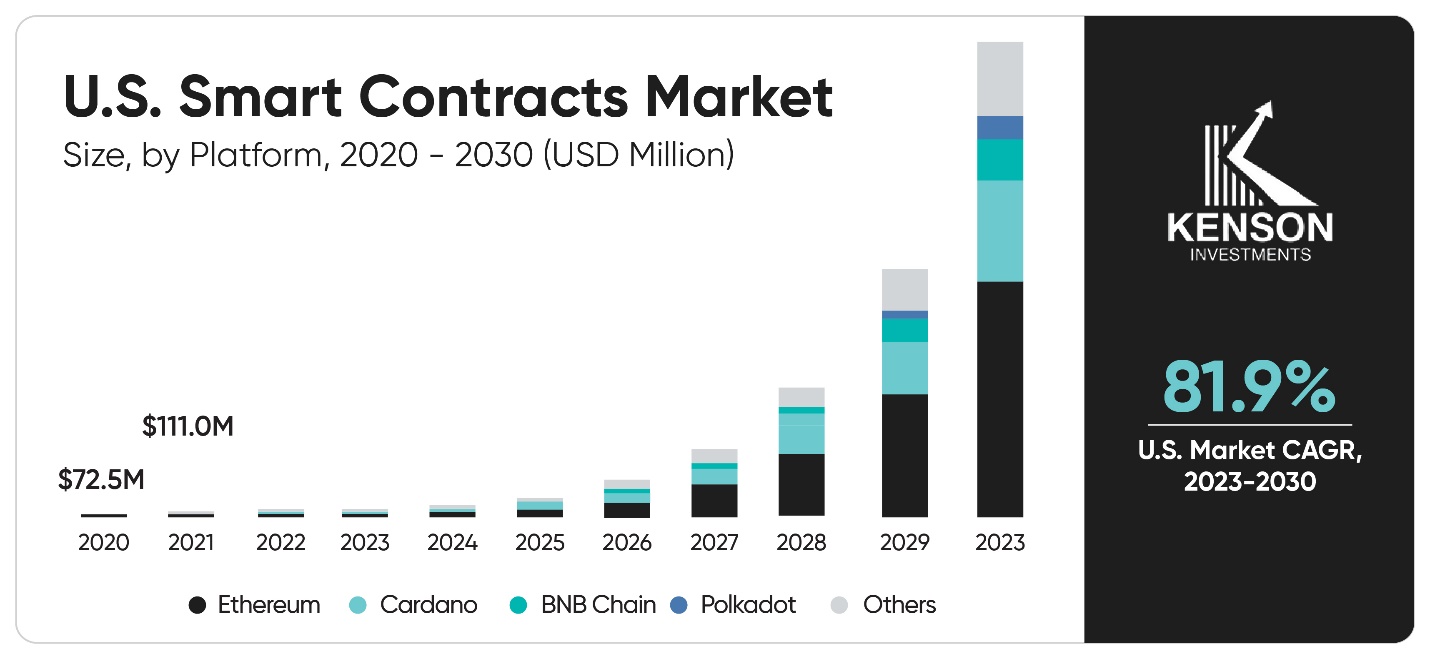The world of finance is undergoing a significant transformation fueled by advancements in blockchain technology. One of the most revolutionary innovations in this space is the concept of smart contracts. These self-executing contracts reside on a blockchain, a distributed ledger technology that ensures secure and transparent record-keeping. In essence, smart contracts act as digital agreements that automatically execute when predetermined conditions are met.
This blog delves into the world of smart contract development, exploring its role in facilitating secure and transparent transactions, the programming languages used to build them, and the exciting potential applications beyond the realm of finance.
Demystifying Smart Contracts: Code Takes the Wheel
Imagine a vending machine. You insert money, select your desired product, and the machine dispenses the item. This simple transaction relies on pre-programmed rules – insert the correct amount and the product is released. Smart contracts operate on a similar principle but in a digital and far more sophisticated manner. Written in code and stored on a blockchain, smart contracts automate the execution of agreements between two or more parties.
These agreements define the terms and conditions under which a transaction will occur. For example, a smart contract can be used to facilitate the sale of a digital asset. The contract would hold the asset in escrow until the buyer fulfills the agreed-upon payment terms. Once the conditions are met (i.e., payment received), the contract automatically releases the asset to the buyer.
Decentralized Finance (DeFi) applications heavily rely on smart contracts to power their operations. DeFi aims to create a more open and inclusive financial system, free from the control of traditional intermediaries like banks. Smart contracts play a crucial role in DeFi by enabling secure and trustless peer-to-peer transactions. Borrowing and lending platforms, for instance, utilize smart contracts to automate loan approvals, collateral management, and repayment schedules. This eliminates the need for intermediaries, reduces transaction costs, and fosters greater transparency within the financial ecosystem.
Building with Precision: Programming Languages for Smart Contracts
Developing smart contracts requires expertise in specific programming languages designed for interaction with blockchains. Some of the most popular languages for smart contract development include:
Solidity: This object-oriented programming language is specifically designed for the Ethereum blockchain. It is widely used and considered beginner-friendly due to its similarities to popular languages like JavaScript. Solidity offers a rich set of features that cater to complex smart contract functionalities.
Developers can leverage libraries and frameworks within the Solidity ecosystem to streamline the development process. However, it’s important to note that Solidity is a Turing complete language, meaning it can theoretically execute any program. This power comes with a security risk, as errors in Solidity code can be exploited by malicious actors, potentially leading to financial losses.
Vyper: Another Ethereum-based language, Vyper prioritizes security and aims to be more statically verifiable than Solidity. Unlike Solidity, Vyper is not Turing complete, which restricts its capabilities but enhances security by limiting the potential for unforeseen vulnerabilities. While Vyper offers less flexibility compared to Solidity, it can be a good choice for developers who prioritize bulletproof security for their smart contracts.
Chaincode: This language is used for developing smart contracts on the Hyperledger Fabric blockchain platform. It is known for its modular structure and focus on confidentiality. Unlike Ethereum, which is a public blockchain, Hyperledger Fabric is designed for permissioned networks, where participants are pre-identified. This allows for more control over who can interact with the network and the data stored on it. Chaincode programs are written in Go, a general-purpose programming language that is known for its readability and efficiency. However, developing smart contracts with Chaincode requires familiarity with the Hyperledger Fabric platform and its unique architecture.
The choice of programming language depends on the specific needs of the smart contract and the chosen blockchain platform. It’s crucial for developers to possess a deep understanding of blockchain technology and the chosen language’s security implications, as any errors in smart contract code can have significant financial repercussions.
Beyond Finance: A World of Possibilities
While smart contracts have revolutionized the DeFi landscape, their applications extend far beyond the realm of finance. Here are a few examples of how smart contracts are transforming various industries:
Supply Chain Management: Smart contracts can track the movement of goods throughout the supply chain in real time, ensuring transparency and reducing the risk of counterfeiting.
Voting Systems: Secure and verifiable voting systems can be built using smart contracts, potentially increasing voter confidence and reducing the risk of fraud.
Real Estate: Streamlining property ownership transfers and automating rental agreements are potential applications of smart contracts in the real estate sector.
The potential applications of smart contracts are vast and constantly evolving. As blockchain technology matures and developer communities grow, we can expect even more innovative use cases to emerge.
Learn with Kenson Investments
Staying current with the latest developments in digital assets, cryptocurrencies, and real-world assets is vital for effective market engagement. At Kenson Investments, we offer comprehensive insights, trend updates, and educational resources to keep you informed and knowledgeable. Our commitment is to provide you with the information you need to navigate this complex market confidently. Join us today and gain the knowledge required to excel in the digital asset market.
Reach out to us today to discover more.
Disclaimer: The information provided on this page is for educational and informational purposes only and should not be construed as financial advice. Crypto currency assets involve inherent risks, and past performance is not indicative of future results. Always conduct thorough research and consult with a qualified financial advisor before making investment decisions.
“The crypto currency and digital asset space is an emerging asset class that has not yet been regulated by the SEC and US Federal Government. None of the information provided by Kenson LLC should be considered as financial investment advice. Please consult your Registered Financial Advisor for guidance. Kenson LLC does not offer any products regulated by the SEC including, equities, registered securities, ETFs, stocks, bonds, or equivalents”
















